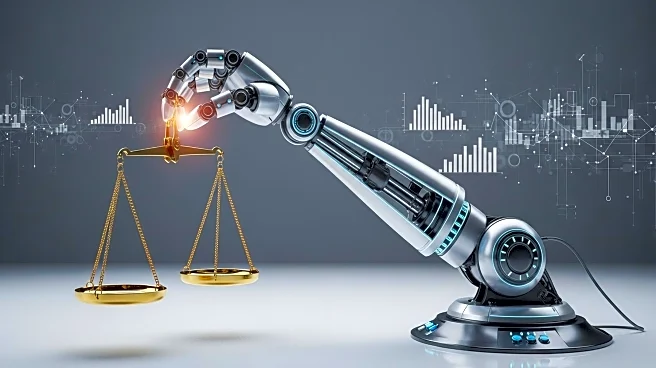What's Happening?
AI transformation is occurring in four phases: assistance, automation, multi-function agents, and autonomy. Employees are using AI tools like ChatGPT to improve job performance, with potential improvements ranging from 15% to 300%. As AI reshapes the job market, HR tech companies are consolidating, aiming to lead AI transformation. Despite fears of job losses, AI is more about slowing hiring and addressing financial concerns. The transformation requires HR to shift talent management strategies, focusing on collective talent density rather than individual lifecycle management.
Why It's Important?
AI transformation is redefining work processes and job roles, necessitating strategic changes in HR practices. Companies that effectively integrate AI can achieve significant productivity gains, enhancing profitability. However, the shift requires careful management of workforce transitions, reskilling, and redeployment to avoid negative impacts on employment. HR's role in facilitating AI adoption and managing talent becomes critical in navigating these changes.
What's Next?
Organizations may need to invest in training and development to build AI fluency among employees, ensuring they can leverage AI tools effectively. HR strategies will likely evolve to focus on creating high-performing teams and adapting to new job designs. The ongoing consolidation in the HR tech market may lead to increased competition and innovation in AI solutions.











